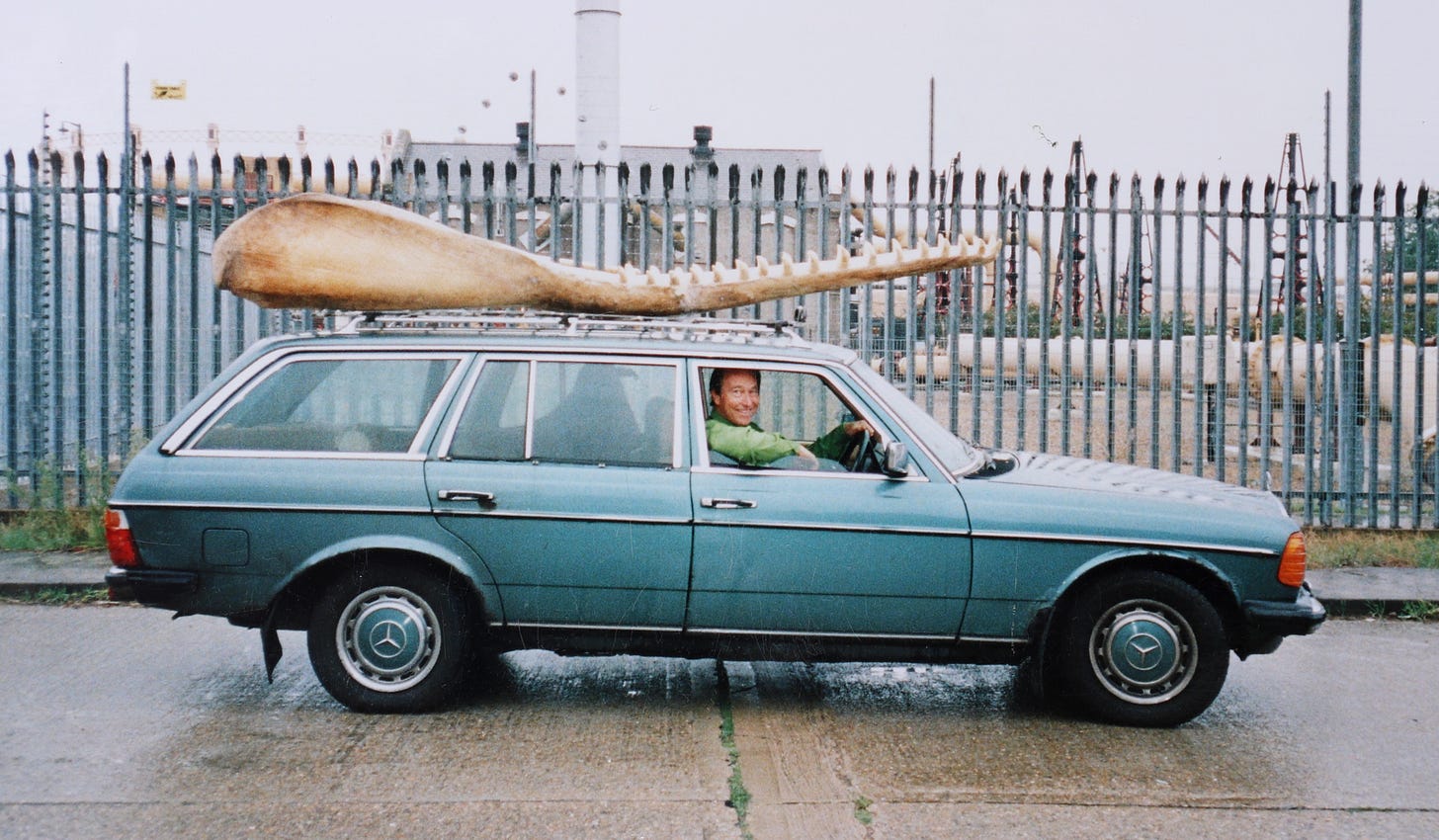In the quiet corners of the world's most eclectic homes, treasures await—each with a story, a history, a life once lived. An upcoming auction raises a compelling question about the journey of collections and the legacy of the collectors behind them.
The antique dealer, Warner Dailey, owned a Mercedes estate that he drove around London and the South of England, filling it with objects ranging from Russian objets d'art to the weird and wonderful, like the sperm whale's jaw mounted on its roof. This passion was sparked during a childhood family trip to Shelter Island (New York), where a visit to a house filled with ethnographic treasures and a hanging sperm whale's jaw inspired Dailey to someday create his own collection. Above, he is pictured after acquiring his very own sperm whale's jaw from the now-closed Gasworks restaurant in Chelsea (London).
The Warner Dailey's Collection, a kaleidoscope of history, art, and the profoundly personal, stands as a testament not only to a life richly lived but also to an uncommon choice in the realm of collectors.
Collector, dealer and interior decorator Robert Kime passed away in August 2022. By October 2023 Dreweatts hosted a three-day auction of his personal collection. As expected, it was incredibly beautiful (you can still view or order the catalogue here). And if you know his work, it was incredibly moving. Yet, I couldn’t stop thinking that the only reason why I could bid on a picture, which I always associated with Kime, his work and his Warwick Square flat in London, was that he is now forever gone.
With thousands of bidders taking part from around the world, the auction secured £9.64 million, with a 100% sell-through rate. The pre-sale estimate for more than 900 items from the “Robert Kime: The Personal Collection,” was £1.2 - 1.5 million. Kime himself famously focused on how well the pieces worked together rather then their individual monetary value.
Kime’s talent for creating beautiful moments in spaces was unparalleled. And his clients were among the wealthiest in the world, including the British royal family. I can’t help but wonder, would his collection have fetched more than seven times its estimate had the auction taken place while he was still alive? Was there an element of greed in trying to secure the final pieces of his legacy, knowing that his work became finite with his death and the auctioned pieces were from his personal spaces? Or did we all just want a piece of genius? The auction’s atmosphere was at times a frenzied scramble that left me uncomfortable - would this fervour have existed had he been alive at the time of the auction?
Sworders is hosting a sale of over 300 Warner Dailey’s personal items on 22nd February. In the interview unveiling the collection, he talks about getting older:
‘I have to think about having a bit of a clear-out and parting with some of these things. For a lot of collectors, their items only get sold when they’ve passed away. So, I thought it’d be more enjoyable to let some of these things go now, while I have some sort of control of and get to experience the enjoyment of seeing other people end up with them, adding them to their collections. It means I can pass on the stories and the histories as far as I know, to somebody who then hopefully will do some more research or be as thrilled with them, just as I was.’
Dailey’s decision leads to a very poignant question: Why does the journey of beautiful collections often begin only in the silence following a collector's death? Many of the collections we find at auctions can be seen as direct consequences of someone’s passing. Perhaps the beauty of antiques lies in the idea that we never really own them; we are merely custodians. Every collection we build is an opportunity to breathe new life into an object, pair it with another or pass on its story (hear the crocodile story in Dailey’s interview, starting at 4:13 in the video above).
Dailey's narrative, interwoven with the threads of passion, curiosity and the inevitable passage of time, challenges us to reconsider the fate of our most cherished possessions. In doing so, it invites us into a broader conversation about legacy, memory and the value we place on things we hold dear.
See you at the auction?
Ax
THE COLLECTION
Keep reading with a 7-day free trial
Subscribe to THE ART EDIT to keep reading this post and get 7 days of free access to the full post archives.


